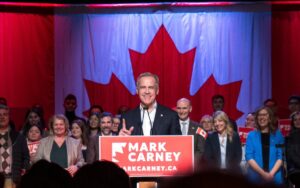
The In-Demand Skills stream of the Ontario Immigrant Nominee Program will now recognize fifty-six occupations (up from twenty-two), allowing more highly-skilled workers to join the workforce in a shorter period of time. Photo Credit: Adobe Stock Images.
As Ontario’s public health-care system seeks to grapple with rapidly expanding needs, the demand for qualified industry professionals is also skyrocketing.
In an attempt to meet this immense challenge, the Ontario government announced last week that it is seeking to enhance the Immigrant Nominee Program.
The government believes that in pursuing this initiative, it will be able to increase the number of new residents who will be eligible for the In-Demand Skills stream of the program, helping to solve the health-care labour crisis, while simultaneously protecting against immigration fraud.
“Under the Leadership of Premier Ford, our government is growing our health care workforce to make it easier for people to connect to the care they need for years to come,” said Ontario Deputy Premier and Health Minister Sylvia Jones. “Our bold and innovative changes will continue to break down barriers for internationally trained nurses and make it faster and easier to start providing care to people and families in Ontario.”
The economic immigration program in Ontario will now allow those who are registered with the College of Nurses of Ontario in designated classes to be exempt from the requirement to present a Bachelor’s degree prior to being admitted into the Ontario Immigrant Nominee Program Express Entry Human Capital Priorities and French-Speaking Skilled Worker streams.
The government says that nominations will now be accessible to a greater number of nurses who have been educated in other locations, therefore allowing them to begin meeting the healthcare needs of Ontario residents more expeditiously. In addition, the In-Demand Skills stream of the Ontario Immigrant Nominee Program will now recognize fifty-six occupations (up from twenty-two), allowing more highly-skilled workers to join the workforce in a shorter period of time.
“Throughout our Your Health Plan, our government is taking action to break down barriers and grow our healthcare workforce now, and for years to come,” explained Hannah Jensen, Deputy Communications Director for Hon. Sylvia Jones. “Last year, we registered 17,000 new nurses, nearly half of which are internationally dedicated by making changes to make it easier and faster for internationally educated healthcare workers to register and start to practice in Ontario. [These include] prohibiting health regularly colleges from requiring Canadian work experience for the purpose of registration and accepting language tests approved under the Immigration and Refugee Protection Act [Canada].”
“We have also broken down barriers for interprovincially educated health care workers, through our government’s As of Right Program which allows health care workers registered in other provinces and territories to immediately start working in Ontario.”
The plans are a part of a broader vision by the Ontario government to allow more professionals who have been outside of Canada to continue practicing various STEM and trades occupations.
“Newcomers play a crucial role in growing our economy and building a stronger and more inclusive Ontario for all of us,” shared Minister of Labour, Immigration, Training and Skills Development David Piccini. “By expanding the current pathways of this program, we are attracting more top-tier talent to Ontario and removing the barriers they face, while addressing the human resources challenges in health care.”
“Our government is making it easier for skilled newcomers to help fill critical gaps and expand our health care workforce in Ontario,” Sam Oosterhoff, MPP for Niagara West, said in celebration of the announcement. “These changes to the Ontario Immigrant Nominee Program will help support internationally educated caregivers on their path to professional practice in Ontario, as well as supporting increased access to doctors, nurses, and other qualified health care professionals in Niagara.”

Nick Redekop completed his Honours Bachelor of Arts Degree in Labour Studies at Brock University. He has previously served in municipal and federal politics. In his free time, Nick enjoys following sports, taking part in outdoor activities, and reading biographies. Nick resides in Niagara Falls



















